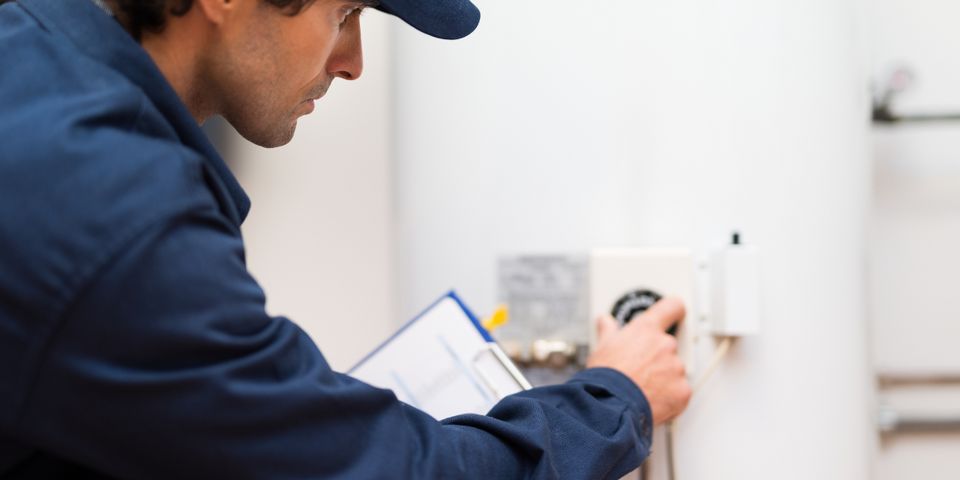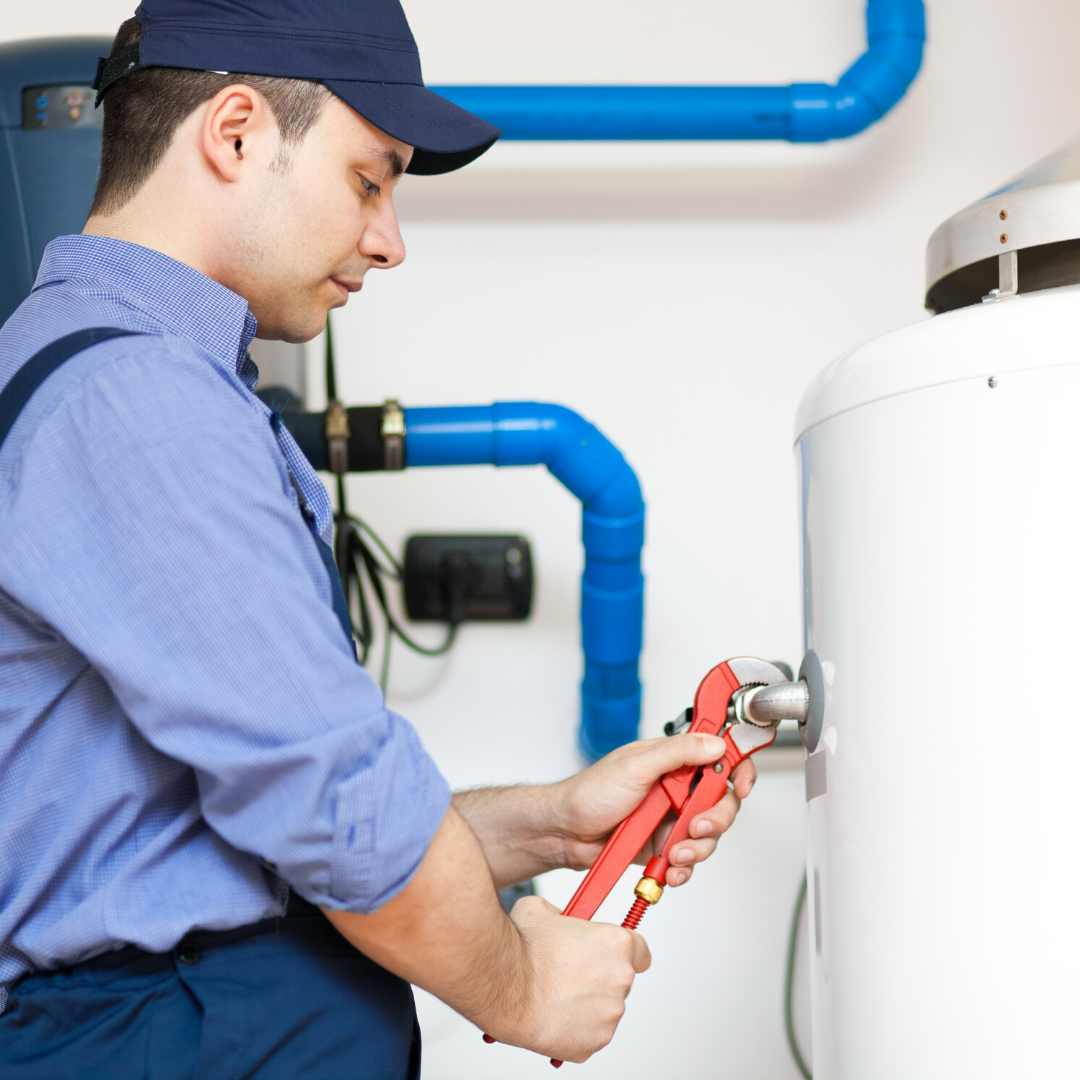Methods to Address the Most Common Heater Urgent Issues
Methods to Address the Most Common Heater Urgent Issues
Blog Article
The author is making several good pointers relating to The Importance of Water Heater Maintenance in general in this post on the next paragraphs.

A hot water heater is just one of one of the most important basic appliances that can be found in a house. With water heaters, you don't need to go through the tension of heating water manually every time there is a need to wash, wash, or the recipes. Nonetheless, there is constantly a possibility that your water heater would break down just like many mechanical devices.
It is necessary to keep in mind any type of little malfunction as well as tackle it quickly before things leave hand. A lot of times, your water heater starts to malfunction when there is an accumulation of debris as a result of continuous use. As a precaution, periodic flushing of your hot water heater is advised to stop debris build-up as well as protect against functional failing.
Usual water heater emergency situations as well as just how to deal with them
Leaking hot water heater container.
A leaky storage tank could be an indicator of rust. It might create damages to the flooring, wall surface and also electric tools around it. You can also go to threat of having your home swamped. In this scenario, you must switch off your hot water heater, enable it to cool off, and thoroughly seek the resource of the issue. At times, all you need to do is to tighten up a few screws or pipeline links in cases of small leaks. If this does not work and the leakage persists, you could require to utilize the solutions of a service technician for an appropriate substitute.
Rising and fall water temperature level.
Your hot water heater might start producing water of different temperature levels generally ice scalding or cold warm. In this situation, the first thing you do is to make sure that the temperature is readied to the preferred level. If after doing this, the water temperature level maintains changing during showers or other activities, you might have a damaged thermostat. There may be a demand to replace either the thermostat or the heating system of your hot water heater.
Insufficient warm water
It might be that the water heating unit can't sustain the hot water demand for your house. You might update your water heating system to one with a larger capacity.
Tarnished or odiferous water
When this happens, you need to know if the concern is from the container or the water source. If there is no amusing odor when you run cold water, after that you are specific that it is your water heater that is damaged. The smelly water can be created by corrosion or the build-up of microorganisms or sediments in the water heating unit tank.
Conclusion
Some home owners neglect little warning as well as minor faults in their hot water heater unit. This only leads to additional damage and also a feasible full breakdown of your appliance. You must handle your water heater faults as quickly as they come near stay clear of even more expenditures and also unneeded emergency problems.
With water heaters, you do not require to go via the stress and anxiety of home heating water by hand every time there is a requirement to take a bath, do the laundry, or the dishes. Your water heater can begin creating water of different temperatures usually ice cool or hot warm. It may be that the water heater can not support the hot water need for your apartment or condo. If there is no amusing scent when you run chilly water, then you are certain that it is your water heater that is damaged. The smelly water can be caused by rust or the buildup of germs or sediments in the water heating system storage tank.
Water Heater Burst: Why This Happens And What To Do Next
Water Heater Explosion Warning Signs
Since storage water heaters are made of metal and store large volumes of heated water, they carry an increased risk of leaking or even exploding as they begin to rust at the fittings and seams over time. If the thermostat controlling the water temperature within the tank is faulty, or if mineral buildup inside the water heater prevents the thermostat from sensing the water’s temperature correctly, the water could become overheated. This will expand its volume within the tank, causing it to press at the tank’s fittings and seams. If these fittings and seams are rusted or corroded, the pressure could result in a leak or even an explosion.
Here are some risk factors and warning signs of an increased risk of water heater leak or explosion:
Your water heater is more than 10 years old. Your water heater makes clanking, banging or rumbling noises as it heats up, indicating that sediment has built up and hardened inside the tank. There is visible rust on the outside of the water heater, especially located at the pipe fittings or the seams that run down the tank. There is rusty water coming from your water heater, indicating that there may be rust building up inside. Your water heater is leaking, which could indicate either a crack somewhere in the tank or a malfunctioning temperature-and-pressure (T&P) relief valve. What To Do When Water Heater Leaks
If you find water dripping or seeping out of your water heater, or pooling around it, it means your water heater is leaking. If you find a leak, it may be best to call a plumbing professional to diagnose the problem and determine how best to handle it. If you choose to tackle it on your own, there are a few things you can do.
TURN OFF THE POWER
Next, shut off the power to the hot water tank at your home’s electrical breaker box. If you don’t shut off the power, the heating elements within the tank could continue to stay hot, which could pose a fire risk.
If you have a gas-powered water heater, you’ll also need to shut off the gas line leading into the tank.
FIND THE LEAK
Now it’s time to determine where the leak is coming from. Likely locations are the T&P valve, the drain valve or one of the pipes or fittings that feed into the top of the tank. If you see any rust or corrosion on the outside of your water heater’s tank, pipes or fittings, these could also be the source of the leak.
REPAIR THE LEAK
Once you determine the source of your water heater leak, you’ll have a better idea of what steps you need to take to fix the problem. It may be a simple fix—such as using a wrench to tighten fittings or replacing the T&P valve—but it may be something more complicated. You may even need to drain the tank, remove the water heater and install a new one.
https://www.abchomeandcommercial.com/blog/water-heater-burst/

As an enthusiastic person who reads on Warning Signs You Need Water Heater Repairs, I assumed sharing that piece of content was worth the trouble. Kindly take the time to share this page if you appreciated it. Thank you for taking the time to read it.
Details Here Report this page